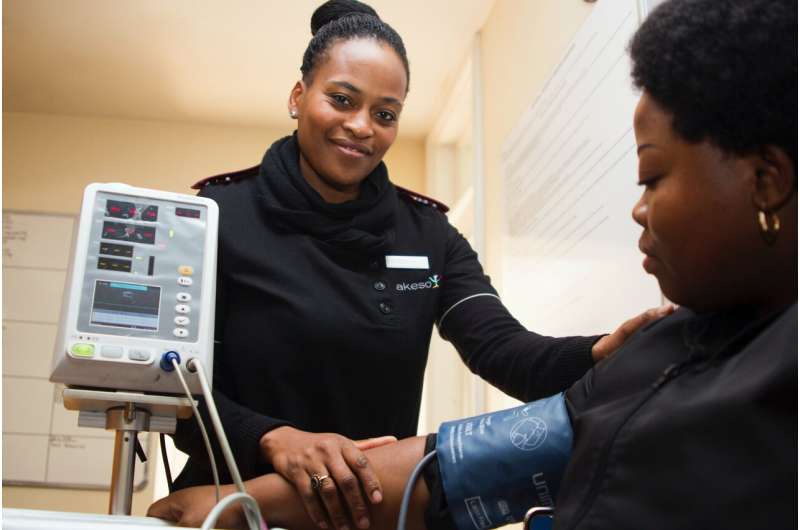#Study paves the way for preventing sudden cardiac arrest

“#Study paves the way for preventing sudden cardiac arrest”

A study comparing commonly used medications for type 2 diabetes has found that sulfonylurea drugs are associated with a reduced risk of out-of-hospital cardiac arrest compared with metformin. The research is published today in the British Journal of Clinical Pharmacology and presented at EHRA 2021, an online scientific congress of the European Society of Cardiology (ESC).
The study was conducted as part of the European Sudden Cardiac Arrest network (ESCAPE-NET), an EU-funded project with 16 partners including the ESC’s European Heart Rhythm Association (EHRA).
Dr. Hanno Tan, ESCAPE-NET project leader and cardiologist, Academic Medical Centre, Amsterdam, the Netherlands said: “More research is needed to confirm the findings and patients with diabetes should not change or stop taking their medication.”
Sudden cardiac arrest causes one in five deaths in industrialized countries. Most sudden cardiac arrests occur in the community. They are triggered by an unexpected cardiac arrhythmia, which is lethal within minutes without treatment. ESCAPE-NET was set up to find the causes of these arrhythmias (e.g., medications) so they can be prevented.
Diabetes is associated with an increased risk of sudden cardiac arrest, partly due to an increased presence and extent of coronary atherosclerosis,5 and there is interest in minimizing this risk. Small studies have suggested that some sulfonylurea drugs, which are commonly used to achieve glycaemic control in type 2 diabetes, may reduce the risk of out-of-hospital cardiac arrest but the evidence is inconclusive.
This study examined whether the use of sulfonylurea drugs (alone or in combination with metformin, another common antidiabetic drug) is associated with reduced risk of cardiac arrest compared with metformin alone.
The study enrolled 219 patients with diabetes who had experienced a cardiac arrest in 2005 to 2011 and were included in the Amsterdam Resuscitation Studies (ARREST) registry. Each patient was matched on age and sex with up to five diabetes patients who did not have a cardiac arrest—for a total of 697 control patients.
The average age in the case and control groups was 71 years and more than three-quarters were men. Compared to the use of metformin alone, the overall use of sulfonylurea drugs was associated with a reduced risk of out-of-hospital cardiac arrest, with an odds ratio (OR) of 0.6 (95% confidence interval [CI] 0.5–0.9). Sulfonylurea drug use—both alone or combination with metformin—was associated with reduced cardiac arrest risk compared with metformin monotherapy (OR 0.6).
Dr. Tan said: “Metformin is typically a first-line treatment which, if ineffective, is followed by a sulfonylurea drug—suggesting that patients taking metformin had less advanced diabetes. This provides additional support for the notion that sulfonylurea drugs reduce cardiac arrest risk.”
The investigators also compared individual sulfonylurea drugs to each other and found that gliclazide was associated with a lower risk of cardiac arrest compared to glimepiride, with an OR of 0.5.
Dr. Tan said: “The results of this study bring us a step closer towards understanding how to avoid sudden cardiac arrest in the community. However, we need more studies to confirm our finding. One day we hope to personalize prevention by prescribing drugs according to an individual’s genetic make-up.”
Commonly used heart drug associated with increased risk of sudden cardiac arrest
Sulfonylurea antidiabetics are associated with lower risk of out-of-hospital cardiac arrest: real-world data from a population-based study. Br J Clin Pharmacol. 2021. DOI: 10.1002/BCP.14774.
Citation:
Study paves the way for preventing sudden cardiac arrest (2021, April 26)
retrieved 26 April 2021
from https://medicalxpress.com/news/2021-04-paves-sudden-cardiac.html
This document is subject to copyright. Apart from any fair dealing for the purpose of private study or research, no
part may be reproduced without the written permission. The content is provided for information purposes only.
If you liked the article, do not forget to share it with your friends. Follow us on Google News too, click on the star and choose us from your favorites.
For forums sites go to Forum.BuradaBiliyorum.Com
If you want to read more Like this articles, you can visit our Science category.




